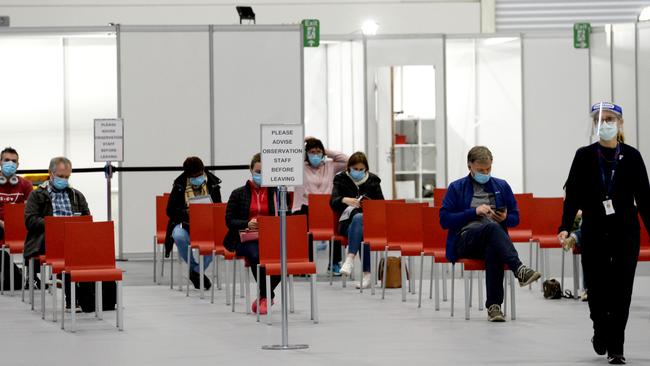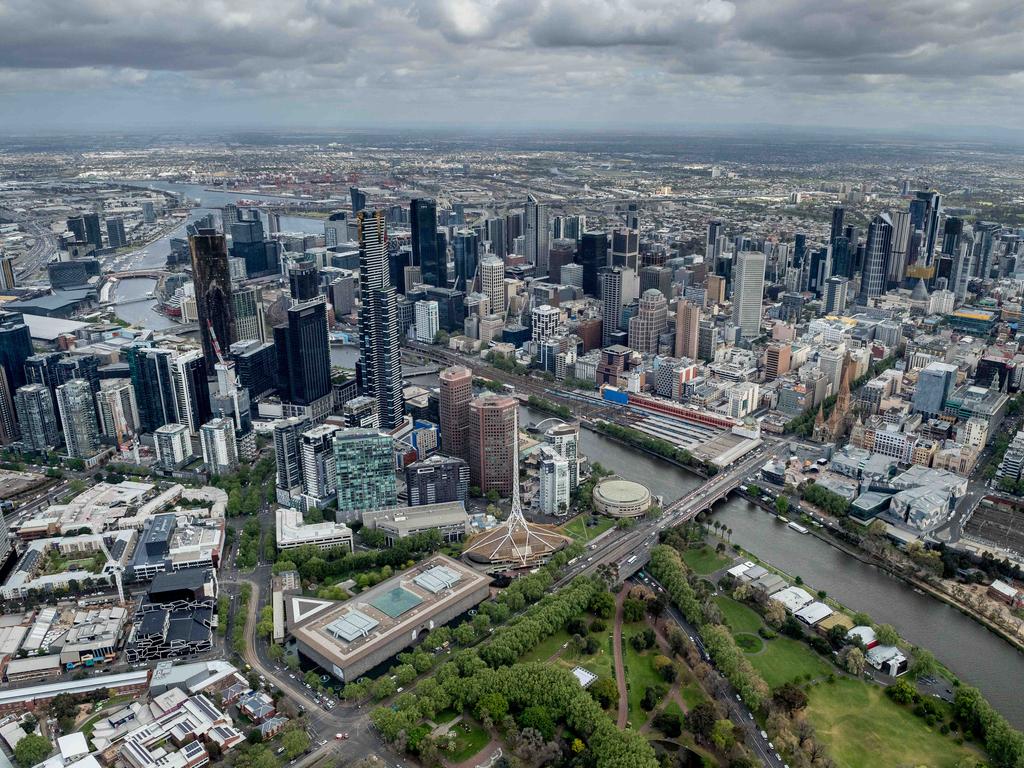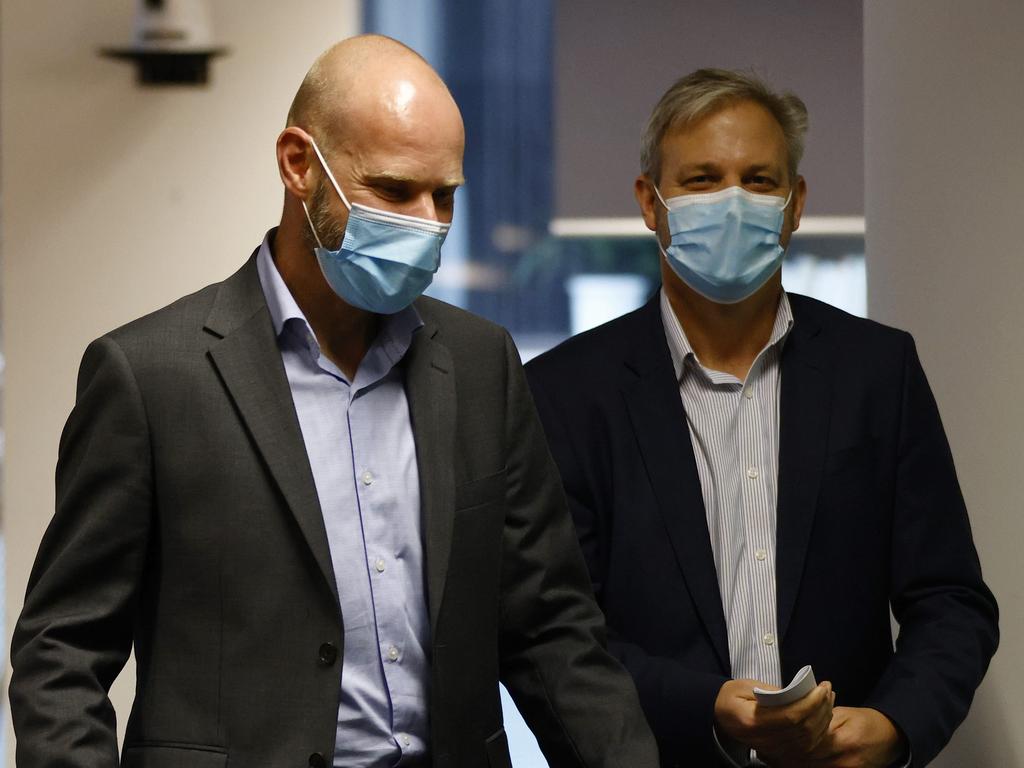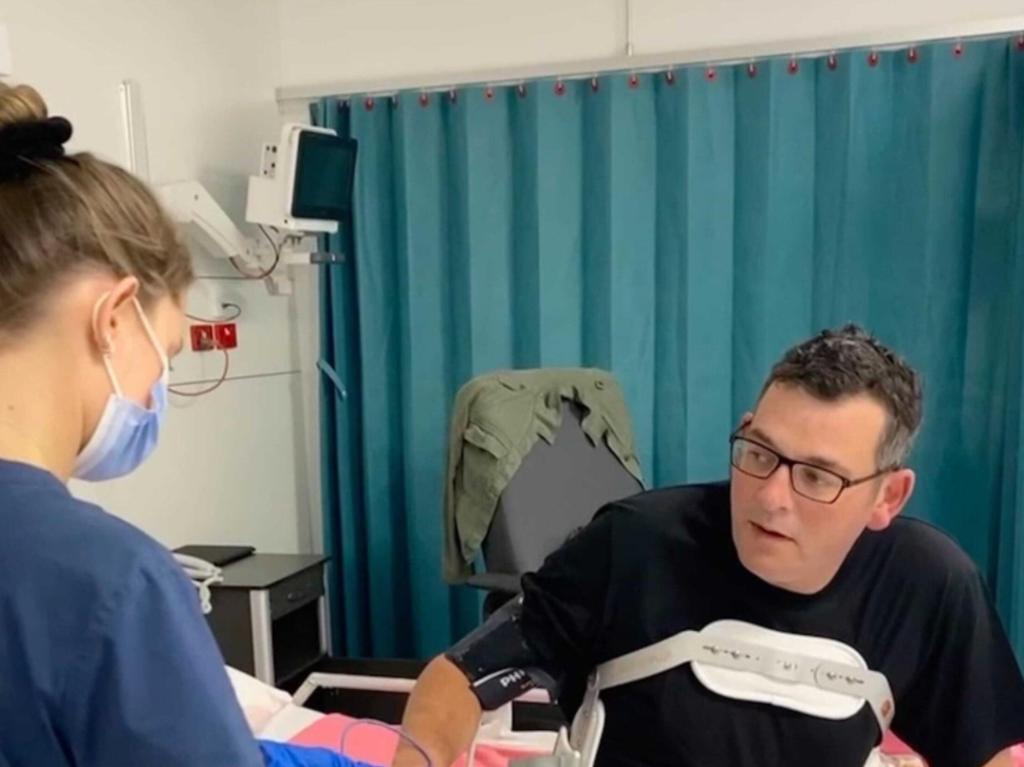Ready or not, the nation will reopen
The cold, hard truth about what comes next in the fight against Covid-19 is beyond depressing. It involves choices, all of which include negative outcomes.

Having done so well suppressing the spread of the virus – saving lives and livelihoods – countries such as Australia are in for a rude shock. We stay locked away from the rest of the world indefinitely or we accept that the time is coming soon when we need to open borders and let the virus rip through the community once everyone has had the chance to be vaccinated.
But here is the problem. Even once vaccines are fully available, it’s unlikely more than 70 per cent of the country will get the jab. We might be lucky to get to 60 per cent.
And that’s including a heroic assumption that those who do get vaccinated get their second jabs on time. If they don’t, or don’t get their second jab at all, the protection the vaccine provides is much more limited.
Even the countries doing the best job of securing widespread vaccinations aren’t nudging beyond the 70 per cent mark. That includes model states such as Israel. Most are nowhere near it.
While anyone who gets the vaccine is protected to the point of avoiding serious illness or death, once vaccinated you still can catch Covid and you absolutely still can pass it on to others. The hope is that it becomes no worse than the flu. In fact, the evidence seems to be that when you’re vaccinated Covid symptoms aren’t even that bad.
But if less than 70 per cent of Australians ultimately get the jab, that leaves three out of every 10 voters (at least) who don’t. They will continue to be at risk of serious illness or death from the virus. While for most of them that’s their choice, their fault, their stupidity, they are still voters in our democratic polity.
It’s a brave political leader who simply tells them: “Bad luck, you’ve got another month to sort out your vaccinations, after which we are opening the borders and we wish you all the best avoiding death.”
But in time that message, albeit delivered with more nuance, might be necessary.
Covid isn’t going away any time soon. It will be circling the globe for many years to come. Once every Australian has had the chance to be vaccinated, good public policy likely will dictate that we need to open back up.
But allowing Covid to enter Australia in a way it has not yet done will make lockdowns such as the current one in Melbourne completely unsustainable on the low numbers we are seeing now.
Are our political leaders willing to let potentially thousands of people catch Covid every week? Because that’s not unrealistic. If that happens simple maths tell us hundreds of them won’t be vaccinated, meaning in turn many Australians will get seriously ill and die.
Most will be anti-vaxxers, who arguably get what they deserve. Some will be citizens who are time-poor or disorganised. Their failure to take personal responsibility will be something they may rue. But there also will be the vulnerable: the homeless, for example, and Australians who for health reasons can’t get the jab.
Certainly they all will be at greater risk when things open back up.
Unless countries like us that have been better at managing the worst of the virus stay closed off, they soon will experience a micro-version of what nations such as the US and Britain did early on during the pandemic.
What can we do about it beyond brace for the inevitable?
Awareness campaigns to get more people vaccinated are one option. Carrots and sticks to increase the numbers are another. We could make it mandatory to get the jab, but that’s unlikely to happen. Forcing Australians to get an injection sounds more like a sci-fi thriller than reasonable government policy.
For the government’s part, it still doesn’t know how it plans to approach this looming moment. It hopes only to have to do so after the next election, which is probably right. But planning for it must start now. It will be the single biggest challenge of the crisis. It will be the moment political leaders must find a way to cut through with the public when urging as many as possible to get vaccinated. And it will be a tough ask for our politicians to stay the course if they do decide we must open up and people start dying.
What happens when the number of cases dramatically increases? Does the media fearmonger? Does the opposition take political advantage of that moment? Do the federal and state governments stay on the same page or fracture with differing responses?
We have seen plenty of issues divide communities through the years, here and abroad. The vaccinated and the unvaccinated loom as perhaps the most powerful dividing line of our generation, depending on how political leaders manage the challenge.
Finally, on another issue. This week started with news the ABC and Christian Porter had agreed to settle their defamation dispute.
Porter dropped his action and in return the ABC (that is, taxpayers) agreed to pay him a six-figure sum (towards his legal costs). It also issued a statement confirming it regretted the outcome of the article in question. That is, it regretted that people who read the article concluded he was guilty.
In line with that regret the ABC also admitted it could not substantiate the historical rape allegations contained in the online article to a criminal or civil standard. That means the ABC conceded that on the balance of probabilities Porter, according to the evidence, is not guilty.
That’s quite a concession, yet the organisation quickly put out a statement standing by its story. So quickly, in fact, it had to apologise to the court for jumping the gun.
What exactly is it standing by? Once you concede that on the balance of probabilities Porter is not guilty, what’s left to stand by? Beyond unsubstantiated vigilante justice in lieu of a guilty verdict. Remembering that the allegations weren’t even put to Porter before being published. Journalism 101.
Yet the vitriol that has been directed Porter’s way since Monday by parties associated with the proceedings has been utterly extraordinary. I couldn’t imagine being that vitriolic towards someone unless I was certain they were guilty of a heinous crime. But that can’t be what they think, given the settlement that has been agreed to. No wonder the managing director of the ABC, David Anderson, apologised to Porter for the way they have carried on.
Peter van Onselen is a professor of politics and public policy at the University of Western Australia and Griffith University.







The cold, hard truth about what comes next in the fight against Covid-19 is beyond depressing. It involves choices, all of which include negative outcomes.